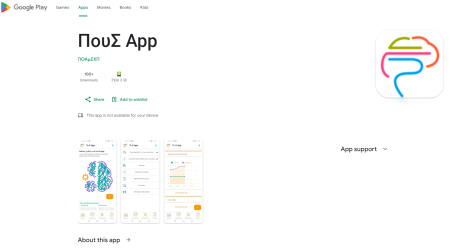
Untapping the potential of data and technology
16.07.2019Technology has dramatically changed everyone’s lives, people affected by MS included. We create a vast amount of data every day, much of which remains untapped and unanalysed. The key question is how we can unlock the potential of technology and data to make sure people with MS get the right treatment, care and support.
EMSP Board member & guest author, Georgina Carr (UK MS Society) had the opportunity to discuss this issue at the EMSP conference in May.
Here are the 6 key themes that emerged.
Taking control of care
Patient technology is opening up a wide range of new ways for people to help manage their MS and feel supported in doing so. Platforms like Health Unlocked allow people to share their experiences with others like them. For people with MS, there are a variety of online forums and networks that can provide support to connect and find the right information.
Digital tools such as applications and wearable technologies are starting to help people manage the logistics of their long-term conditions. For instance, by reminding them to take their medication or by helping them manage injection sites.
Data generated through digital tools can also be used for a more focused, richer discussion during those critical conversations with MS professionals.

Accessible care
Time and time again, people with MS have to share their experiences with the myriad of professionals that they might come into contact with. Many people also have to travel a significant amount of time to access MS specialists.
Online consultations (email, online messaging and video) can bring care closer to home where appropriate. People in the UK for example have received generally well the use of video consultations for MS care – particularly by people who struggle to access health care services. Video consultations with health care professionals might work particularly well for people with MS who have mobility issues. In fact, many evaluations of web-based interventions describe how people with MS welcome the convenience of remote interventions.
Using data to coordinate care
Harnessing technology to analyse medical data and history – and share it more easily – would allow professionals to truly act as a team. It has the potential to help them involve each other where needed and to responsively react to issues as they occur. However, there must be improvements in the sharing of data across different parts of the health and care system.
Although there is a clear ambition from various national bodies to enable efficient and effective data-sharing across organisations and providers, progress towards this has been blocked. Why? Because of the lack of incentives for commercial companies to share their software and the nervousness about the legalities of data-sharing at a professional and patient level.
Further action needs to be taken.

Using data to better meet patient needs
Many countries in Europe could improve MS data collection and use. Designing MS services at a local level is often not based on an understanding of how many people have MS, the services they need, or might need in the next few years. Neither on how the condition is changing and progressing within the population group. In turn, it is often down to chance whether someone with MS will have access to the necessary specialist support.
Similarly, we need to agree the most important data outcomes for MS services if this picture is to change. Bringing the MS and health community together to agree the most important outcomes of an MS service is the necessary first step to embedding these and improving data collection.
We know that with action, comprehensive and robust MS data could be collected and shared. This would allow us to plan and commission services on a complete picture of the needs of the MS population, as well as the outcomes that matter most.
The potential is great – tackling inaccessibility
This is just a snapshot of the potential, data and technology can have to improve treatment, care and support for people affected by MS. The MS Society in the UK looked at this in more detail last year.
There is a risk however that many people affected by MS risk being left behind in this digital revolution. For example, cutting edge technology remains inaccessible or too costly for most of the people affected by MS.
We need to find ways to ensure that our health systems can properly evaluate new technologies, adopt and spread best practice. Consequently, every person with MS who could benefit from new technology will be able to do so.

MS Technology Forum
There is a wealth of information out there for people affected by MS. Knowing who and what to trust online, or which digital tools could be effective, can be difficult to understand or interpret.
Too often, digital tools are developed without the involvement of people with MS. The UK MS Society is seeking to address this through the establishment of an MS Technology Forum. They will bring together people affected by MS, healthcare professionals and technology developers to discuss common issues in MS, and how new/untapped technology could be developed to address these.
Clearly, the potential of data and technology to improve the lives of people affected by MS is great. But, the MS community must work together to truly untap this potential and ensure that people with MS are at the heart of this digital revolution.
Would you like to help us in untapping the potential of data and technology?
Contact us via email at mate.tagaj@emsp.org
 Your Account
Your Account


